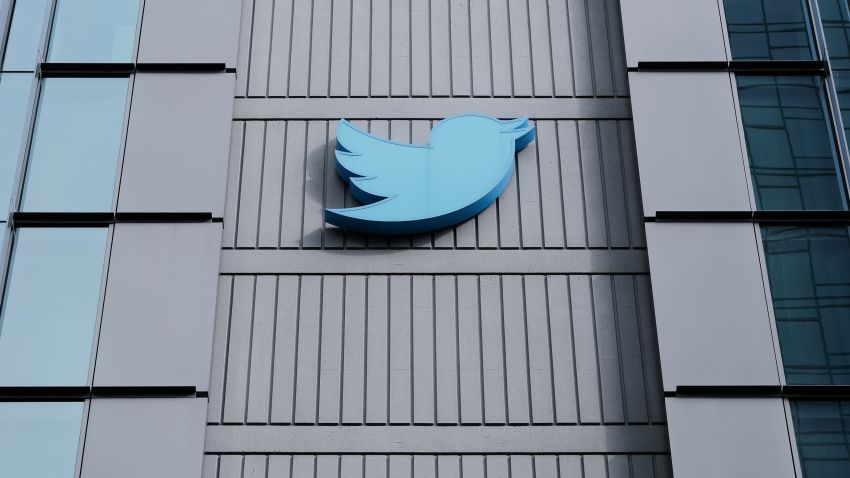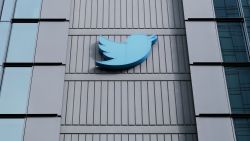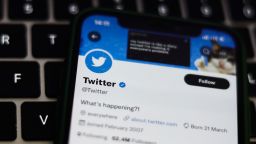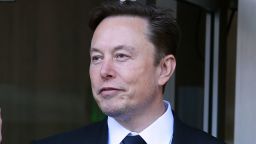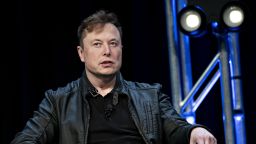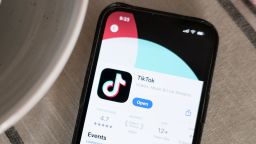When Elon Musk first agreed to buy Twitter, he promised to make the company “better than ever,” with greater transparency, fewer bots, a stronger business and more of what he called “free speech.”
But six months after Musk took control of Twitter, the future of the company and the platform have never been less certain.
After acquiring the social media platform for $44 billion in late October, Musk reportedly now values Twitter at around $20 billion — and some who track the company believe even that estimate is likely high. Musk repeatedly warned that Twitter could be at risk of filing for bankruptcy only to claim he had brought it back from the brink thanks to his slashing costs, both by laying off 80% of Twitter’s staff and allegedly by failing to pay some of its bills, according to multiple lawsuits. But it’s not clear just how and when Musk might return Twitter to growth.
He has antagonized journalists and news outlets that have long been central to the platform’s success, overseen policy changes that threaten to make Twitter less safe or reliable, made the platform less transparent to researchers and scared away many top advertisers. Musk’s primary plan to grow Twitter’s business through an overhauled subscription strategy has resulted in much chaos but only a limited number of actual subscriptions.
In the process, Musk has also upended his own reputation. Once known by much of the public primarily for his innovative efforts to launch rockets and build electric cars, Musk has instead spent much of the past six months in the headlines for controversial policy and feature changes at Twitter, draconian cuts to staff resulting in frequent service disruptions, and briefly banning several prominent journalists. He’s also tweeted a long list of eccentric remarks from his personal Twitter account, including sharing conspiracy theories and publicly mocking a Twitter worker with a disability who was unsure whether he’d been laid off.
“If he had done nothing except cut costs, then Twitter would have been okay,” said Leslie Miley, a former Twitter engineering manager who started its product safety and security team and left the company in 2015. He has since held roles at Google, Microsoft and the Obama Foundation. “If you had just let everyone go, treated them with respect, and just let the service run for two years, you probably would be okay.”
Now, though, Miley said he expects Twitter will “eventually go down the road of MySpace.”
“It’s going to take a little bit longer … [but] I think Twitter is on its way to irrelevance,” he said, “there is no strategy to acquire or retain users because you are offering them no value.”
Twitter, which has slashed much of its public relations team under Musk, responded to CNN’s request for comment on this story with the auto-reply from its press email that it has used for weeks: a poop emoji.
Disrupting the digital town square
For years, what differentiated Twitter from other social platforms was that it served as a central hub for real-time news. It was a place for ordinary people to read and even engage in conversation with celebrities, business leaders and other newsmakers.
Many of Musk’s recent moves at the platform threaten to undermine that purpose, not to mention the larger information ecosystem — and it’s not clear the efforts will improve the company’s business.
“Twitter has never been perfect, it had a lot of problems but it was critical global infrastructure for information that Elon Musk is now systematically, frankly, vandalizing,” former Twitter chair of global news Vivian Schiller told CNN in a recent interview.
Most recently, Musk removed the legacy blue check marks that verified the identities of prominent users, saying he would instead make the checks available only to those who pay $8 per month for Twitter Blue in the interest of “treating everyone equally.”
“There shouldn’t be a different standard for celebrities,” Musk said in a tweet earlier this month.
But the move may make it easier for bad actors to impersonate high-profile people and harder for users to trust the veracity and authenticity of information on the platform. What’s more, Musk then decided to sponsor the blue checks for certain celebrities, including Stephen King and LeBron James, in effect creating exactly the “different standard” for famous users he’d professed to want to avoid.
Now, Musk says content from verified users will be promoted on the platform, potentially making it harder for users who can’t afford a subscription, or simply don’t want to pay Musk for one, to find an audience on the platform. And the new paid verification system won’t necessarily rid the platform of bots, an issue Musk spent months railing on while trying to get out of the acquisition deal last year, according to Filippo Menczer, a computer science professor at Indiana University and director of the Observatory on Social Media.
“You can create fake accounts and pay $8 [for a blue check] … so if you are a well-funded bad actor, you can do more damage now than you could before,” Menczer said. “And if you are a reliable source and you’re not well-funded, your information will not be as visible as before.”
Menczer added that the result could be “less free speech, because you’re drowning out the speech of regular people [with speech] by people who either have the technical skills or the money to manipulate the system.”
Twitter’s move to charge users of its API will also make it harder for researchers to identify and warn the platform about inauthentic activity, Menczer said, and could disrupt other positive uses of the platform that contributed to its reputation as a news hub. Weather agencies, for example, have warned that the change could make it harder for them to release automated emergency weather alerts.
Shedding advertisers and users
Any social network lives or dies based on its ability to retain and attract users — and there’s real reason for Twitter to be worried.
A number of users, celebrities and media organizations have said they plan to leave Twitter over Musk’s recent policy changes — which often appear to be made on a whim without any real principles.
NPR, BBC and CBC left Twitter after opposing a controversial new “government-funded media” label that they say was misleading. CenterLink, a global nonprofit that represents hundreds of centers providing services to LGBTQ communities, said it would no longer use Twitter after the platform removed protections for transgender users from its hateful conduct policy. And some high-profile users, such as bullying activist Monica Lewinsky, have threatened to exit the platform over the blue check change, now that they may be at greater risk of impersonation on Twitter.
There remain few alternatives that offer similar features and scale to Twitter, but a growing list of upstart competitors has emerged since Musk’s takeover. At least one large rival, Facebook-parent Meta, has also confirmed it’s working on a service that sounds a lot like Twitter.
“Almost everything he said he was going to do, he has screwed up in any number of ways,” Miley said. “If it weren’t so damaging to people and organizations who have depended upon the platform, it would be funny. But it’s not actually funny because it has degraded people’s ability to communicate effectively.”
All of the chaos has made it difficult to convince advertisers, which previously made up 90% of Twitter’s revenue, to rejoin the platform, after many halted spending in the wake of Musk’s takeover over concerns about increased hate speech, as well as confusion about layoffs and the platform’s future direction.
Just 43% of Twitter’s top 1,000 advertisers as of September — the month before Musk’s takeover — were still advertising on the platform in April, according to data from market intelligence firm Sensor Tower.
Musk, for his part, has said that Twitter’s usage has increased since his takeover and that advertisers are steadily returning to the platform. But because he took the company private, he is not obligated to make financial disclosures and followers of the company are left to take him at his word.
Musk’s reputation
Musk built his reputation by overhauling Tesla, helping to launch a widespread shift away from gas cars to electric vehicles and growing SpaceX into a space transport juggernaut. Now, he appears to be attempting a similar overhaul at Twitter — upending the tried-and-true digital advertising business in favor of a subscription model that no other social media platform has yet been able to find large scale success with.
“I give him some credit for trying a different business model, I think the business model based on user data is quite abusive,” said Luigi Zingales, professor at the University of Chicago Booth School of Business, although Musk has also attempted to improve Twitter’s targeted advertising business.
Some other tech companies have followed his lead in some places. Facebook-parent Meta copied Twitter by launching a paid verification option. And Meta, along with a number of other tech companies, have undergone multiple rounds of cost-cutting since last fall. Twitter appears to have given cover for some of these ideas, and other firms’ somewhat more principled approaches made them look better by comparison.
For Twitter and Musk, the stakes for success are high: Musk’s relationships with banks and investors for future endeavors could hinge in part on his performance at the social media firm, which he took on billions of dollars in debt to purchase. Banks “will sit down and say, what kind of cred does this guy have? Will we find him making these shoot-from-the-lip sort of dictates that, in fact, throw our money down a hole?” said Columbia Business School management professor William Klepper.
Any change to Musk’s reputation from his time leading Twitter could also ultimately have ripple effects for his broader business empire, causing potential investors, recruits and customers to think twice about betting on one of his companies. Tesla (TSLA) shareholders recently complained to the company’s board that Musk appears “overcommitted.”
“His reputation has been diminished significantly with Twitter … and once you lose it, it’s very difficult to recover,” Klepper said. “It would be a good opportunity for [Musk] to rethink whether or not … he’s really leadership material.”
Musk in December pledged to step down as Twitter CEO after millions of users voted in favor of his exit in a poll he posted to the platform. But for now, he remains “Chief Twit.”

